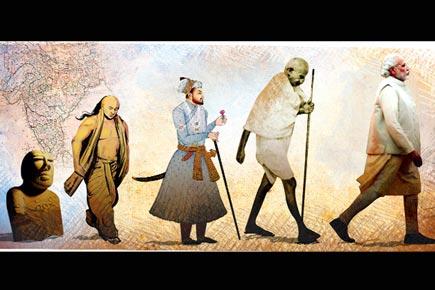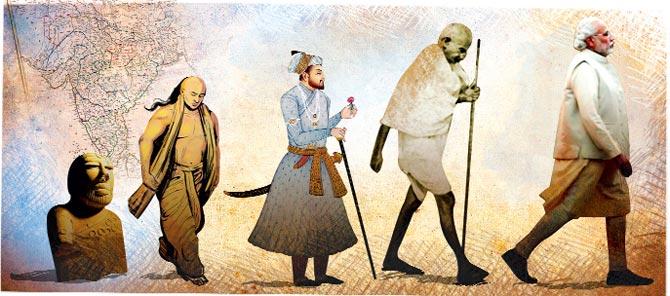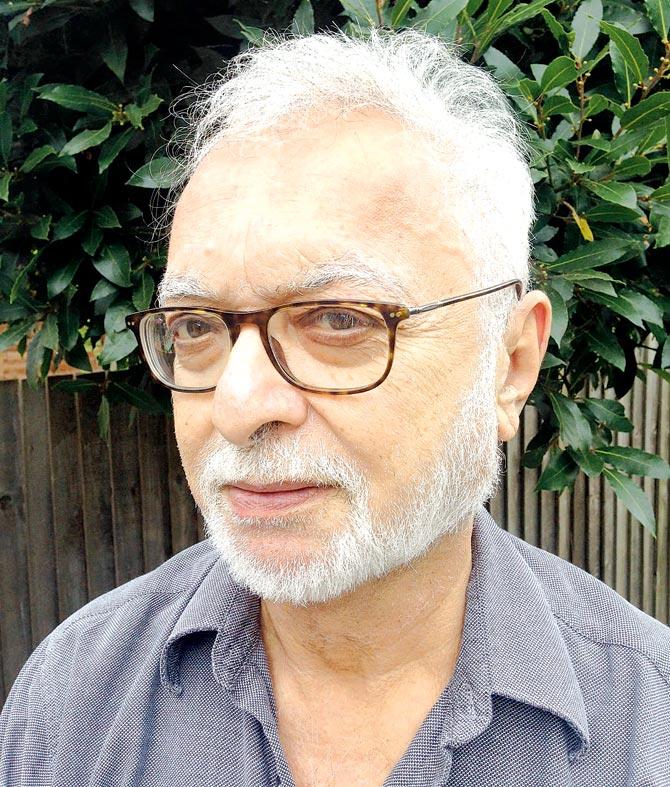Writer Farrukh Dhondy doesn't spare his wit, even when writing textbook-like stories. His new title promises a different history lesson


India My India traces the country's history from Mohenjodaro to contemporary times. Illustration/Ravi Jadhav
What makes Farrukh Dhondy witty? When you ask the 72-year-old Indian-British writer and columnist, he says, "It comes as a shock…that you elevate my silliness to the status of 'wit'." Nevertheless, Dhondy, who for years has regaled Indian readers with his chuckle-worthy opinion, is now extending bright wisdom to history. His new book, India My India (Rumour Books India), traces the country's story from where it first began — Mohenjodaro.
ADVERTISEMENT
With a funny narrator in the driver's seat, this history class doesn't have a dull moment. That the UK-based writer initially planned to call the book India for Idiots, but changed his mind, is comforting. In an email interview from London, where he lives with his family, he tells us why he pored over hundreds of textbooks to fact-check his opinion.
Edited excerpts:
You've written fiction before. This appears to be your first attempt at writing an Indian history book. Why the shift?
It is my first stab at a history book, but not my first non-fiction work. I originally thought of it as a history primer for my daughters and son who are half-Indian, half-British. They visit India, see their aunts and cousins, do what Europeans do on the beaches of Goa, sit on the bench where Princess Diana was photographed at the Taj, cruise around Rajasthan and relish Indian cuisine. I wanted them to be more familiar with the history that they were oblivious to, and started this book, which I called India for Idiots. Friends said it might prove an ideal guide for visitors to India, so I did add appendages to the chapters.

Farrukh Dhondy started writing the book as a history primer for his half-Indian, half-British children
How do you consider your work different from the academic kind of history?
I have included in the book some fanciful mythological stories or even folk-tales passed on by my father, grand-uncle or teachers. For instance, acknowledging that it's just a story, I've included the legend of the young architect of the Taj Mahal who was blinded by Shah Jahan after the building was complete. One version says the emperor did it to prevent him making another such monument. The alternative story is that Shah Jahan heard the rumour that the architect was in love with the Queen and had drawn his inspiration from that obsession. The Emperor then, in jealous rage, blinded him, but the young man, with blood streaming down his cheeks confessed, or boasted, to the emperor that he had left a single engineering flaw in the dome of the Taj through which one raindrop would escape each monsoon and fall in sorrow on the tomb of Mumtaz Mahal. Bull stuff? Yes, but moving.
What's your favourite moment in Indian history?
One proud moment in India's history is Pandit Nehru's Tryst with Destiny speech to the nation at the moment of independence from British colonial rule. He said, "at the stroke of midnight, while the world sleeps…. India awakes… etc." I'm sure that Panditji knew that at the stroke of midnight in India, America, Japan and a lot of the world was not asleep but wide awake and going about their business. Perhaps, he was thinking of the 'siesta' nations.
You're most known for your sense of humour, especially in your columns. How much of that has seeped into the book?
One of my favourite Raj Kapoor films is Mera Naam Joker, which depicts the sad side of the clown. However, it comes as a bit of a shock to me that anyone would elevate my silliness to the status of 'wit'. I've just been reading an essay by Lytton Strachey (Who? this cyber-generation might well ask) in which he says that Dostoevsky should be known for his sense of humour. Doom and Gloom Dosto? Crime and Punishment Fyodor? OK! I am content to be in such company. And no, there are no jokes though there might be some howlers, which no doubt Willy Dalrymple, Roddy Matthews and other historians will point out, in my stab at India's history.
There's a lot of ground that you have covered, right from the Indus Valley Civilisation to post Independence. How much time and material did you invest in this?
It is truly Mohenjodaro to Modi (its alternative title). But, then one or the other of the 'M's may have been unhappy at being included in the same phrase. Yes, I read a lot of books and even went to a library after years.
Now that you've written a history book, do you see yourself teaching this in the classroom?
A classroom? Not again. I used to be a schoolteacher, but all that is outlined in my very readable fraction-of-an-autobiography called London Company (Ai Shuddup yaar! No advertising here!)
 Subscribe today by clicking the link and stay updated with the latest news!" Click here!
Subscribe today by clicking the link and stay updated with the latest news!" Click here!







